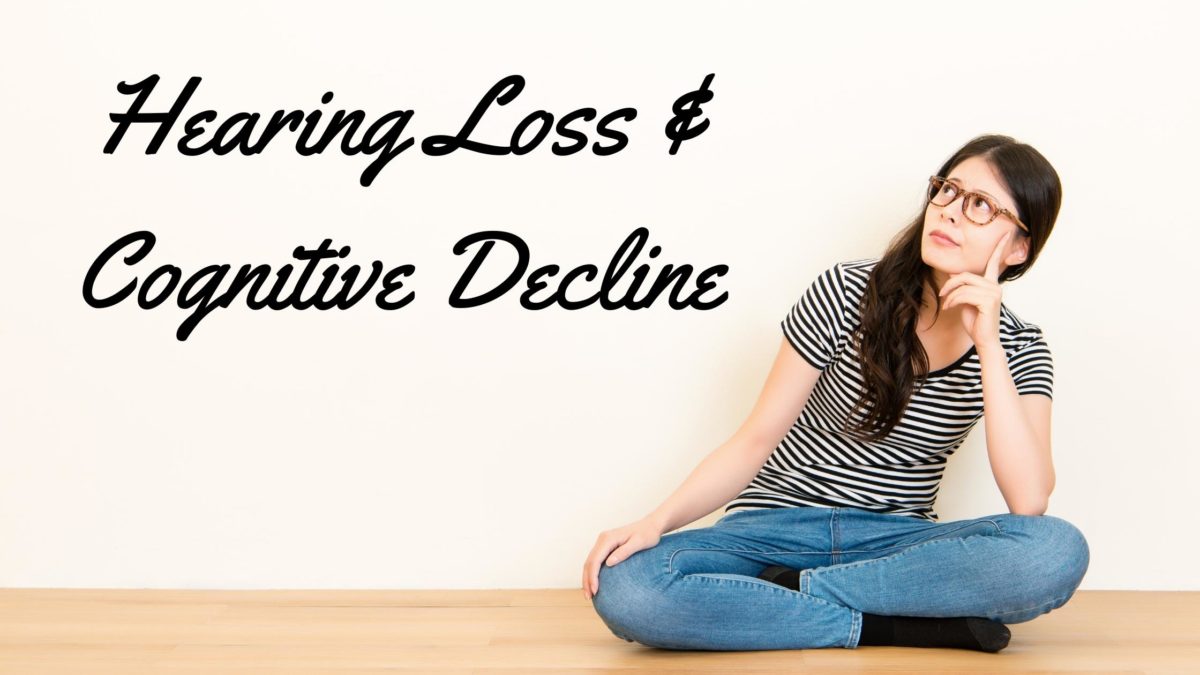Hearing loss makes it hard to follow conversations or connect with the world around you. You might turn up the volume on the TV and strain to hear on the phone. While hearing loss may seem like an inconvenience, it’s a lot more than that. Untreated hearing loss is linked to cognitive decline, as well as an increased risk of dementia and Alzheimer’s disease.
Hearing Loss Isn’t Just a Part of Aging
Hearing loss can indeed be part of the aging process. Age-related hearing loss is one of the most common kinds of hearing loss. One in three adults over 60 have hearing loss, and 50% of adults over 75 have some hearing loss. Sadly, many older adults think that hearing loss is just a normal part of aging, so they put off treating hearing loss. On average, people wait between 5 to 7 years before treating hearing loss!
Hearing loss may be common as we age, but living with untreated hearing loss can have a major impact on our health and wellbeing. Untreated hearing loss can lead to social isolation and loneliness. It also contributes to feelings of stress, anxiety, and depression. Untreated hearing loss makes it hard to communicate with loved ones or get the social support we need. Untreated hearing loss even increases the risk of having an accident or injury!
Even though hearing loss is a common concern, that doesn’t mean we should ignore it. Let’s look at how hearing loss is linked to cognitive decline, and how treating hearing loss can help keep the mind active and sharp.
Are You Straining to Hear?
Hearing loss can make it hard to follow conversations. You may be using a lot of energy staining to hear, working hard to fill in the gaps in your hearing. While many people think this doesn’t do any harm, the truth is that straining to hear can also put a strain on your brain.
Your ears help you hear all the sounds around you, but hearing happens in the brain. The auditory centers in the brain take all the signals from the ears and translate them into what you actually hear. When you have hearing loss, your brain works hard to help you make sense of all the sounds around you, even if your ears aren’t picking up on all the sounds in your environment.
Other areas of your brain may get called in for support. You may use a lot of energy filling in the blanks and guessing the sounds you didn’t hear. These areas of the brain put so much effort into helping you hear that they don’t have enough energy to make sense of the sentences, process what’s being said, or transfer information into memories.
Are Your Avoiding Conversations?
Hearing loss can also change how you interact with the world and with the people around you. This can also contribute to cognitive decline. If you have hearing loss, you may be tempted to withdraw from social interactions. You may spend more time alone to avoid the embarrassment of asking people the repeat themselves or risking misunderstandings. While straining to hear is hard on your brain, isolating can also contribute to cognitive decline. Just like your body, your brain also needs exercise to stay healthy. And for your brain, social interactions are often the best exercise.
Treating Hearing Loss
Many people avoid getting a hearing test because they’re worried they might need hearing aids. But if you could do one simple thing to help your brain and reduce your risk of cognitive decline, wouldn’t you? Treating hearing loss is an easy and effective way to combat cognitive decline and keep your mind active and sharp as you age.
Hearing Aids that Help Your Brain
Modern hearing aids are sophisticated devices designed to help your ears and your brain. Hearing aids help you hear more of the sounds around you. They also amplify speech sounds and can reduce background sounds. Hearing aids reduce listening effort and ease the strain on your brain. Hearing aids also give you back your confidence in conversations. You won’t have to worry about mishearing what’s being said or worry about answering incorrectly.
Are you ready to do the right thing for your ears and your brain? Visit us today for a hearing test!

